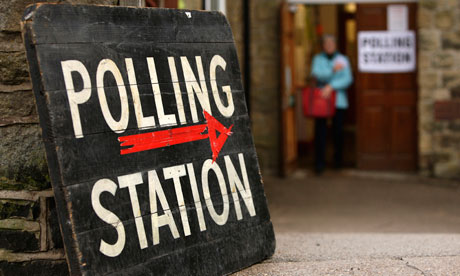By Sean McDaniel
In less than a week, the UK will go to the polls in an election that has been billed as ‘the most important in a generation,’ and certainly the most unpredictable. In addition to choices over cuts in public expenditures to be determined by the party that forms the next government, there could be significant constitutional implications as well.
The rise of the UK Independence Party (UKIP) over the past few years has helped to drag the UK to the brink of a ‘Brexit’, with a referendum on EU membership due in 2017 if the Conservatives are elected into office. Aside from the core issue of immigration, one of UKIP’s now familiar rallying cries has been to deplore the erosion of British democracy which, it argues, has been ceded to the EU’s ‘technocrats’ who now dictate British laws and policies.
A less obvious trend is emerging in this campaign that genuinely poses a danger to the vitality of democratic politics in the UK- an increasingly technocratic approach to economic policy.
Yet, whilst UKIP’s arguments about the loss of democratic choice may be familiar to observers of European politics, a less obvious trend is emerging in this campaign that genuinely poses a danger to the vitality of democratic politics in the UK- an increasingly technocratic approach to economic policy.
If there has been one central theme running throughout the lead-up to the 2015 election, it is the question of economic competence and the battle between the two main parties, Conservative and Labour, over who deserves the mantle of ‘most competent manager’ of the economy. Each wishes to present itself as having a balanced approach to reducing the deficit and debt. Undoubtedly, according to public polling at least, it is the Conservatives with their long-term economic plan who have done the most to convince the public of their ability to manage the country’s economic affairs. The Conservative message that Labour ‘got us in this mess’ clearly has resonated with the electorate.
If there has been one central theme running throughout the lead-up to the 2015 election, it is the question of economic competence and the battle between the two main parties over who deserves the mantle of ‘most competent manager’ of the economy.
In launching their manifesto, Labour understandably sought to address this issue. In doing so, it announced on page one that all of its economic policies would be subject to a ‘budget responsibility lock.’ As part of this proposed ‘lock,’ all parties would be forced to submit their tax and spending plans to the Office for Budget Responsibility (OBR), an independent body, for auditing. Just a day later at their own manifesto launch, the Conservatives sought to reject their image as ‘the nasty party,’ committed to cutting beyond what is necessary, by pledging to increase free child care allowances and freezing rail prices.
Much was written about the ‘political cross-dressing’ of the two parties- both have been keen to counter their rival’s claims over the other’s economic incompetence and cold-heartedness. Rather than swapping clothes, it appears as though the two parties are battling over who will wear the technocrat’s fiscal straightjacket. Since the launching their manifesto, Conservatives have promised their own ‘lock’ in order to counter claims that they would raise taxes, including VAT, by pledging a codified commitment to maintain current levels for income tax rates, VAT or national insurance before 2020 if emerge victorious.
Rather than swapping clothes, it appears as though the two parties are battling over who will wear the technocrat’s fiscal straightjacket.
UKIP may decry the loss of political autonomy to Europe. Yet, at home, there is a danger of creeping technocratisation. In the fight to prove their economic credibility, whichever party triumphs will remove some of the main fiscal levers upon which they normally rely. When considered that, under an independent Bank of England, the government has no say in monetary policy, the proposed ‘contracting out’ of fiscal policy would further remove significant powers from the Chancellor of the Exchequer. Whether under the watch of the OBR or simply working within the confines of the law, the political capacity of those democratically-elected individuals to manage the economy will be reduced.
In such an important and tightly contested election, the two main parties are struggling to prove to the electorate that they deserve their votes. Appealing to their concerns over economic management is therefore understandable. Yet, surely, in an age wherein technocratic politics have been the source of so much angst across Europe channelled through parties as diverse as UKIP and Syriza, we need economic policies and arguments to be put forward that resonate with people’s values, hopes and ambitions. Donning a fiscal straightjacket may be politically salient today in a tense run-up to the election, but, in the long run, it could be damaging to the vitality of democratic politics.
Sean McDaniel is a PhD candidate at the University of Warwick. His research is focused on the politics of social democracy in post-crisis Europe.



